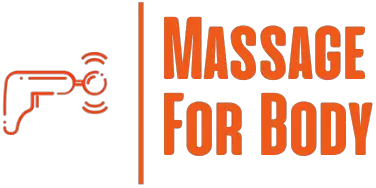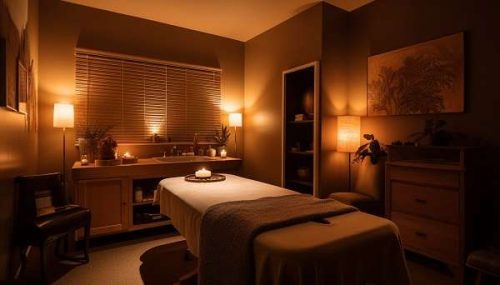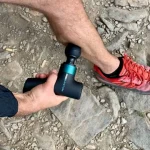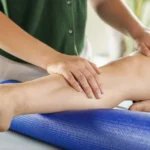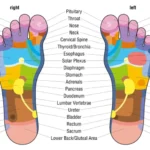Massage Parlors & the Law: Why Enforcement Looks Different Than You Might Expect
Massage businesses in the United States operate under a patchwork of licensing, zoning, and regulatory rules—and that can make enforcement look inconsistent from the outside. While some people wonder why police rarely raid massage parlors, the truth is far more administrative than dramatic. Most establishments operate legally, follow local regulations, and provide legitimate therapeutic services.
When questions arise about oversight or compliance, they are usually handled by licensing boards, health departments, or zoning authorities, not police. Law enforcement steps in only when there is clear, actionable evidence that a crime may be occurring.
In this guide, we break down why enforcement varies so widely, how regulatory agencies decide when to take action, and what this means for legitimate businesses, workers, and clients.
Table of Contents
Reasons Why Police Don’t Raid Massage Parlors
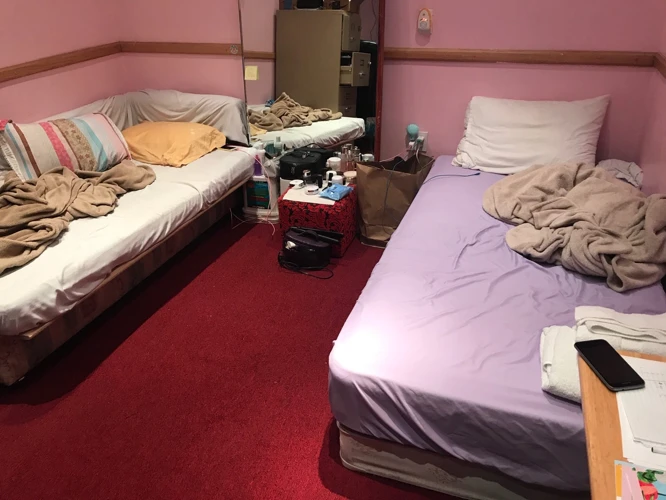
Limited actionable information
Law enforcement often needs clear, credible information before opening an investigation. Without complaints, licensing issues, or visible violations, many businesses—massage-related or otherwise—do not immediately draw attention from police. When no specific reports or evidence are available, agencies may not have the grounds to initiate an inquiry.
Difficulty gathering evidence
Activities that occur behind closed doors can be challenging to substantiate. Even when concerns are raised, agencies must meet strict legal standards before conducting searches or enforcement actions. Without reliable evidence, arranging a lawful raid is often not possible.
Distinguishing legitimate from non-compliant businesses
Most massage establishments operate legally, follow licensing rules, and provide legitimate therapeutic services. Identifying the small number that may be out of compliance requires time, coordination, and careful investigation to avoid unfairly targeting lawful businesses or licensed massage therapists.
Resource constraints
Police departments frequently prioritize cases that pose immediate risk to public safety. Administrative issues—such as business licensing or zoning violations—may instead fall to regulatory agencies or local government departments. This division of responsibility can lead to fewer direct law enforcement actions unless a clear criminal element is present.
Curious how to choose a trustworthy, licensed massage therapist?
Learn the signs of a professional, well-regulated practice and how to protect your wellbeing: 👉 Full Body Massage: What to Expect
Impact of Limited Enforcement
Risk of unregulated environments
When businesses operate without proper licensing or oversight, it can create inconsistent or unsafe conditions. Strong regulatory systems help ensure consumer protection, quality standards, and ethical business practices.
Worker safety concerns
Any personal-care business lacking appropriate oversight may not follow best practices for worker protection, training, or workplace conditions. Regular inspections and licensing help ensure that employees and clients are in safe, compliant environments.
Importance of clear regulation
Clear rules and coordinated enforcement help distinguish compliant businesses from those operating outside regulatory expectations. Effective oversight supports public safety and protects the reputation of legitimate massage therapy professionals.
Role of Public and Private Organizations
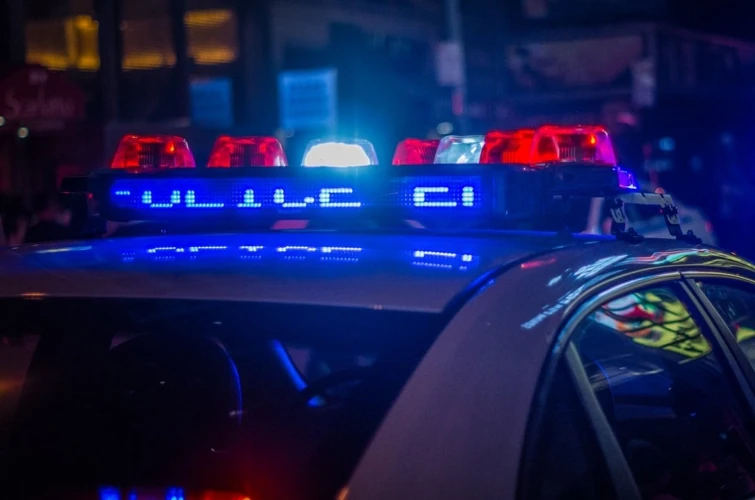
Massage parlors are often subject to regulation by local, state, and federal government agencies. This means that the role of public and private organizations is to ensure that massage parlors comply with applicable laws, such as those related to safety and sanitation, and that they are operating in accordance with applicable regulations. Additionally, public and private organizations are also responsible for monitoring massage parlor operations in order to make sure they are providing legitimate services, and that they are not engaging in any criminal activities.
In the absence of sufficient regulation, many massage parlors are able to operate without fear of police raids. This has resulted in an increase in the number of massage parlors operating illegally or engaging in illegal activities, such as prostitution and human trafficking. In some cases, these organizations have been able to avoid detection by law enforcement because of their ability to hide their activities or simply because of the lack of resources for police raids.
Therefore, it is important for public and private organizations to ensure that massage parlors are operating in line with applicable laws and regulations and that they are not engaging in any criminal activities. Only then can police raids be conducted in order to ensure that massage parlors are operating legally and safely.
Challenges in Regulating Massage Businesses
Overlapping jurisdiction
Licensing, zoning, and permitting responsibilities often span multiple agencies. This can create gaps in communication and slow the process of addressing concerns or verifying compliance.
Resource limitations
Investigating potential violations requires staff, funding, and time. Agencies with limited personnel or high caseloads may prioritize urgent matters before administrative or business-compliance issues.
Protecting legitimate professionals
Because most massage therapists are ethical, licensed practitioners, enforcement agencies must balance thoroughness with fairness. Avoiding unnecessary scrutiny of lawful businesses adds complexity when evaluating complaints or determining whether further investigation is needed.
Frequently Asked Questions
What evidence do authorities use to investigate a massage business?
Oversight agencies typically rely on licensing records, customer complaints, inspection reports, or zoning inconsistencies. In some cases, they may also review permit documentation or conduct routine compliance checks. If concerns arise, local authorities follow formal procedures to determine whether a business meets the legal and regulatory requirements in that area.
What’s the difference between a licensed massage business and one that’s out of compliance?
A licensed massage business follows local laws, holds proper permits, and employs trained, credentialed professionals. A business operating out of compliance may lack appropriate licensing, violate zoning or building codes, or fail to meet hygiene and record-keeping standards. The distinction is based on regulatory adherence, not assumptions about the services provided.
What factors determine whether a business receives an inspection or enforcement visit?
Local authorities may conduct visits based on routine scheduling, complaints, permit renewals, or discrepancies identified in public records. These visits help ensure that businesses follow health, safety, and licensing requirements. Decisions are typically driven by administrative processes rather than assumptions about criminal activity.
Why might enforcement actions be rare in some areas?
Enforcement frequency varies by region and depends on staffing levels, budgets, complaint volume, and the structure of local regulatory agencies. In many places, routine inspections and administrative reviews address most compliance issues without requiring more serious enforcement steps.
How do regulations help protect workers and clients?
Licensing and inspection standards help ensure that massage businesses follow proper sanitation practices, maintain safe environments, and employ trained professionals. These regulations support fair working conditions and help protect clients who rely on therapeutic massage for wellness and pain relief.
Can a legitimate massage business operate safely without frequent police involvement?
Yes. Most massage establishments are regulated through administrative systems—such as licensing boards, zoning departments, and health inspections—rather than law enforcement. When businesses follow local rules, police intervention is generally unnecessary.
Conclusion
The question of why police rarely raid massage businesses is more complex than it appears. In most cases, these establishments fall under administrative regulation, not criminal investigation. Licensing boards, zoning departments, and health inspectors play a primary role in oversight, while law enforcement becomes involved only when clear evidence of illegal activity is present. Understanding how these systems work helps clarify why enforcement approaches vary widely from one region to another.
For legitimate massage professionals—and for clients seeking safe, therapeutic care—strong regulatory frameworks remain essential. They promote transparency, protect workers, and help ensure that the industry as a whole continues to operate responsibly and ethically.
🔥 Related Articles
• What Is Therapeutic Massage?
• What Happens at a Massage Spa?
• What to Expect During a Full Body Massage
📚References
🔗Why Don’t Police Raid Massage Parlors? – Huffpost
🔗New York Police Raid Massage Parlors After Online Review Sites – The New York Times
🔗Mayo Clinic – Massage Therapy
⚠️ Disclaimer:
This article is for informational purposes only and does not constitute medical advice. Always consult with a licensed healthcare provider or certified massage therapist before beginning any new treatment, especially if you have pre-existing health conditions or concerns.
